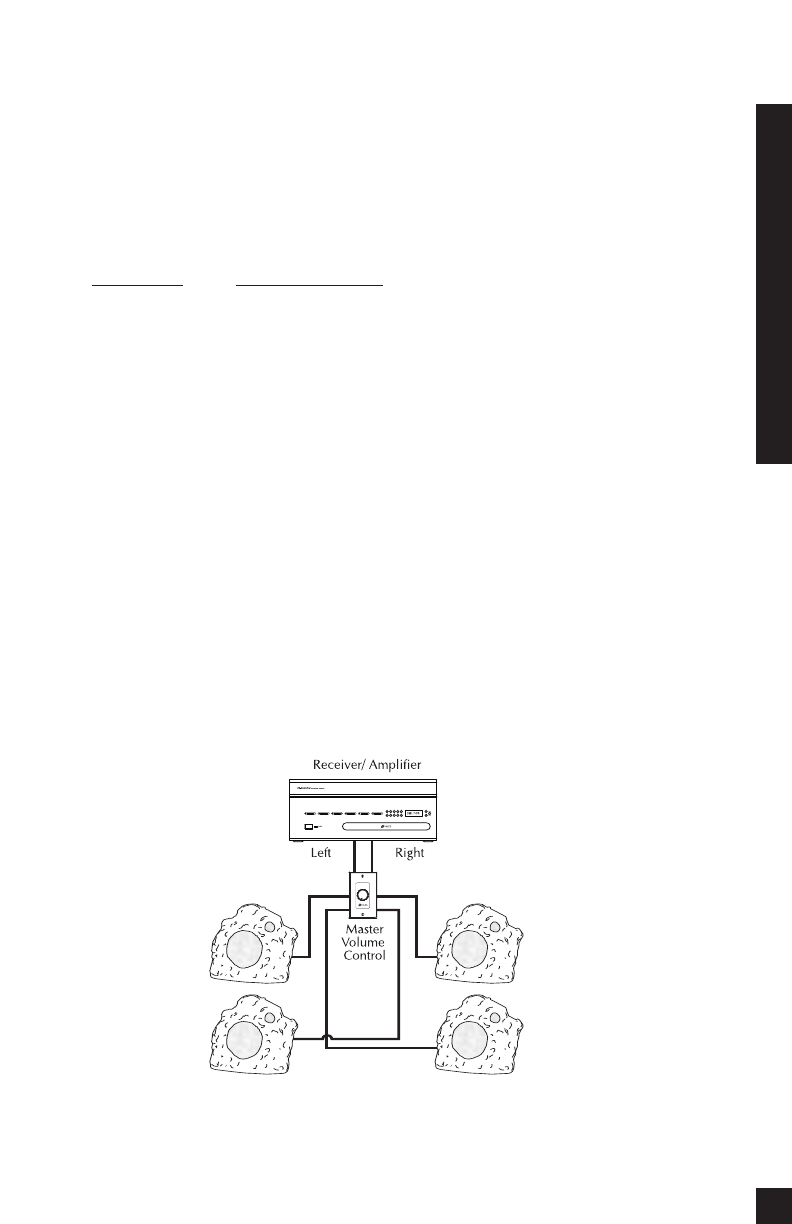
• You will need 2-conductor speaker cable that clearly identifies each conductor in
the cable. If burying your cable in the ground is required, use cable rated for
direct burial or run cable through PVC pipe. Always use moisture resistant cable.
• After calculating the length of cable needed for each speaker, use the furthest
length cable to determine the gauge (thickness) of speaker wire to use:
Wire Gauge
Maximum Distance
16 . . . . . . . . . . . .60 ft (18 m)
14 . . . . . . . . . . . .100 ft (30 m)
12 . . . . . . . . . . . .160 ft (50 m)
• When running wires inside walls or outdoors, you should install your wires while
conforming to your local building requirements and codes. If you are unsure of
these codes, consult a professional audio/video installer, building contractor or
local building and inspection agency that has jurisdiction.
Incorporating a Volume Control
It is possible to control the volume of the sound at the speaker location. Volume
controls are connected in line with the speaker, an example of wiring an area with
4 speakers and a master volume control is shown in
Figure 4. It is usually desirable
to control the volume of the speakers in different areas or zones of the outdoor
system. A suggested way to accomplish this is shown in
Figure 5. Niles makes
a wide range of outdoor volume controls. We recommend our standard
weatherproof volume control, WVC100 series or our weatherproof muting volume
control, WMVC series. In addition to controlling the volume of the loudspeakers,
these controls can allow the addition of added speakers without adding more
amplifier channels.
INSTALLATION CONSIDERATIONS
8
Figure 4 One Zone Volume Control Wiring


















